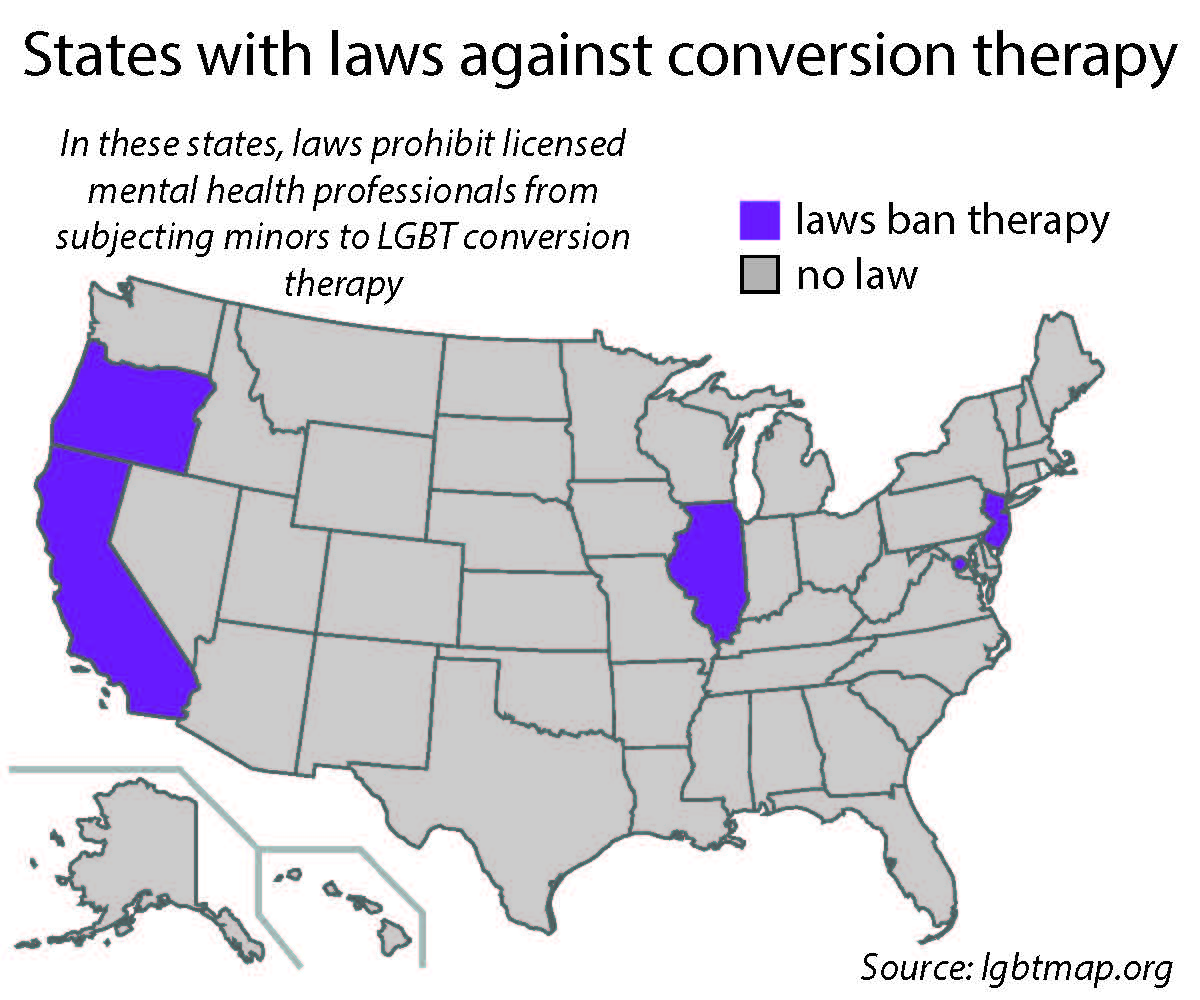![]()
Therapists banned from altering clients’ sexuality
New York Governor, Andrew Cuomo, issued a series of rules earlier this month designed to stop the practice of conversion therapy, a form of counseling in which therapists attempt to change the sexual identity of gay, lesbian or transgender patients.
Under this new series of rules, any licensed organization funded by the state will be legally obligated to refrain from implementing the practice or it will lose funding. Preventative measures have also been put in place in California, New Jersey, Oregon and the District of Columbia, with as many as 18 other states introducing similar legislation later this year.
“There’s probably not a more divisive topic in the field of psychology,” Kevin Simpson, professor of psychology at John Brown University, stated, “largely because it intersects between public policy, cultural changes and our understanding of the research about psychological therapy and sexual identity sort of questions.”
Conversion therapy is the focus of both political and human rights agendas. In a statement by Gov. Cuomo, he insisted that New York has long been at the forefront of the gay rights movement. He addressed conversion therapy as a “hateful and fundamentally flawed practice that is counter to everything this state stands for.”
Moreover, some have found that the method produces harmful and negative side effects in treated patients. The American Psychiatric Association has long opposed the practice; a recent report concluded that the therapies were “inappropriate and reinforce harmful gender stereotypes.” Above all, concerns with the practice stem from the harmful side effects that patients experience, such as depression and thoughts of suicide.
Simpson explained that when patients are attempting to navigate their sexuality, “it is often wrapped around a whole lot of other issues like what it means to find love and intimacy.”
An inappropriate invasion of such personal identity issues can have devastating effects, especially when “society pushes people to claim identity based on their attraction and intimacies,” rather than on something more all-encompassing such as “identity in Christ,” Simpson said.
In dealing with gender identity, he found wisdom from the author Mark Yarnhouse, who advises those attempting to navigate the subject of sexuality to ask themselves, “how do we encounter people where they are?” and to listen before speaking.
Cade Blush, senior family and human services and biblical and theological studies double major, attested to the negative outcomes of speaking before listening in a therapeutic setting.
When he was 17 years old, Blush, now 22, was forced to undergo a form of conversion therapy after he expressed that he had experienced thoughts of same-sex attraction. His parents brought him to an hour and a half long meeting with the three of them and five church elders and they attempted to “pray the sin out of him.”
Rather than helping, the meeting only made Blush angry and confused.
“I was trying to get over my initial shock and anger,” Blush explained. “I wanted to leave so many times.”
Because of this negative experience, Blush not only refused to go back to any similar meetings, but failed to explore his sexuality in a healthy manner. It was not until beginning a year and a half of professional counseling with former professor, Nick Ogle, that Blush was able to address the issue in an appropriate manner.
During this time, he explored his role as a child of Christ and considered the question, “how are we going to let that transform your life?” Through biblical and academic study Blush said he discovered that God revealed himself in the “image of a sacrificial relationship.” Blush said that “even though in my mind I am attracted to the same sex, somehow it doesn’t reflect the perfect relationship [God has] shown to us.”
“If someone doesn’t know how to respond to their sexuality, then that’s great, that’s fine; that’s a process that takes months, years, decades,” Blush said. “This is way bigger than just the words of the Bible. This is human experience—it takes falling, getting back up…”
Blush does not suggest that anyone seek conversion therapy counseling from their church, but does encourage others to respond to the fact that God desires an all-encompassing relationship with each and every member of the church.
“In my personal journey, I’ve had to learn that my love for God’s own self… must take precedence over my own sexuality,” Blush said. “Whether you’re heterosexual, homosexual…your sexual orientation is in submission to God. I want that to be my story: someone who submitted myself to God, more than anything else, no matter how much it hurts.”





